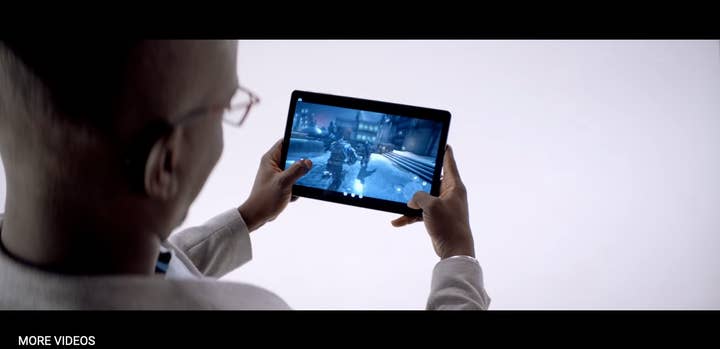Just 15% of European gamers are interested in Google Stadia and xCloud
According to the latest survey results from GameTrack for UK, France, Spain and Germany
70% of gamers surveyed in UK, France, Germany and Spain say they're not interested in a video game streaming services.
The data comes from the latest research conducted by Ipsos MORI's GameTrack survey, on behalf of GamesIndustry.biz.
15% of the surveyed gamers (defined as anyone playing games via any device) are interested in a Netflix-style streaming service for games in the four territories included in the study. The remainder either 'don't now' (12%) or already utilise a service akin to Google Stadia and Microsoft xCloud (such as the current market leader, PlayStation Now).
Just 3% of gamers claimed to be 'very interested' in such a streaming service.
The country that is most intrigued in gaming streaming platforms is the UK with 23% of players claiming to be interested (although just 5% are 'very interested'), followed by France and Spain (14%).
German players are the least interested, with just 10% of gamers keeping an eye on the services and 75% who are not interested.
Interestingly, European gamers are not too concerned by the challenges of internet connection. GameTrack asked gamers across the four markets to agree or disagree with a series of statements, and 43% believe their 'internet connection is fast enough to stream games' (23% disagreed, with the remainder unsure). The UK is the market most bullish about its internet capabilities, with 54% agreeing that their internet connection is strong enough to stream games (the least confident market is France, where 37% agreed with the statement).
However, 32% of gamers across the territories said they 'would worry about my internet connection dropping, which would prevent me from streaming games', whereas 28% were not concerned by this. Interestingly, the UK (the market most confident that it can stream games) is also the territory most concerned about internet dropping out (45%).
Potentially one of the reasons why streaming might struggle in Europe is because of the continued popularity of packaged games. 31% of surveyed gamers agreed with the statement 'I prefer to buy packaged games than stream' (versus 24% who don't). Cost is also a concern, with just 22% agreeing that a subscription-based service (which is what many of the streaming services are proposing) would offer good value for money.
But there were some promising results that could boost consumer interest. 27% of surveyed gamers agreed with the statement 'I would be more interested in a streaming service if I could download content to my hard drive', (26% disagreed with that statement). And 41% agreed with the statement: "not having to wait for updates before playing is an advantage of streaming games" acknowledging the potential benefits of a streaming services (13% disagreed).
Of course, it is important to note that one of the main objectives of streaming services is to widen the access of console and PC games to new audiences who currently do not own a dedicated gaming device (particularly in emerging markets). However, GameTrack's survey results do indicate how popular non-game streaming/subscription offerings are in France, Germany, UK and Spain, both amongst gamers and non-gamers.
50% of those surveyed in the four markets claim to live in a household with at least one subscription service, with 21% subscribing to two or more and 7% subscribing to three or more services. Netflix is the most popular based on claimed household subscriptions (30%), followed shortly by Amazon Prime (27%) and then Spotify (12%).
Despite scepticism around gaming subscription services, gamers are prolific non-game streamers/subscribers across the four European markets. 59% of gamers claim to live in a household that subscribes to any streaming platform (again, Netflix comes out top), 27% subscribe to two or more, and 10% subscribe to three or more.
According to claimed household subscriptions, the UK is the biggest market for streaming non-game content, followed by Spain, Germany and then France

